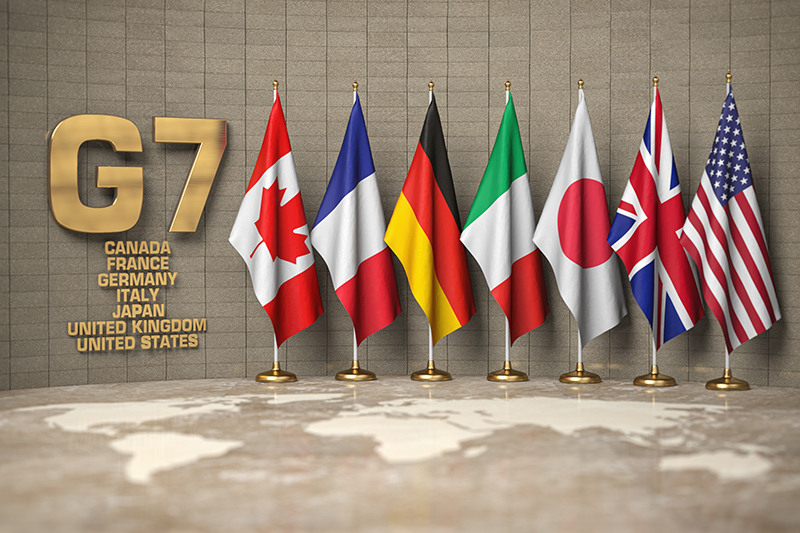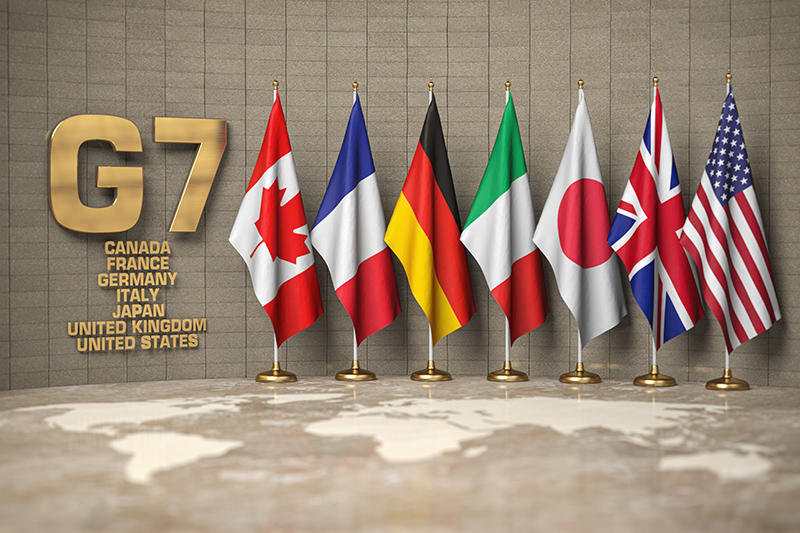G-7 and G-20 Countries at Odds Over Stablecoin Regulation Amid Fears for Emerging Economies

While global leaders are working towards establishing universal rules for the crypto sector, advanced and emerging economies are divided on the regulation of stablecoins.
The Group of Seven (G-7) economies, an international forum of seven of the world’s advanced economies, are ostensibly more open to regulating stablecoins.
On the other hand, emerging economies represented in the wider G-20 grouping are calling for tougher restrictions, or even prohibitions, over concerns about the potential impact on monetary policy and financial stability.
The G-20 is another forum for international economic cooperation made up of the G-7 jurisdictions, along with 13 other member countries, including ten emerging economies.
These differences in approach threaten to fragment unified oversight and stall the acceptance of global norms for stablecoins.
The G-7 and G-20 have committed to leading the establishment of globally coordinated norms for cryptocurrencies.
Japan and India currently hold presidencies of the G-7 and G-20, respectively.
The two bodies, to varying degrees, are relying on global standard-setters, such as the International Monetary Fund (IMF), the Financial Stability Board (FSB), and the Financial Action Task Force (FATF), to make recommendations and rules for the cryptocurrency sector.
However, while both groups have vowed to implement FATF’s anti-money laundering rules for crypto, recent statements have indicated differences in their views on the regulation of stablecoins.
The G-7 has said that its nations will align with the FSB’s recommendations for stablecoins, which are focused on the impact of stablecoin use on wider financial stability.
In comparison, the G-20 is looking to align with a more nuanced synthesis paper jointly produced by the IMF and the FSB, which is expected between September and October.
The G-7 has pushed for tighter norms and signaled its commitment to implementing the FSB’s individual recommendations for regulating crypto and stablecoins, which are expected in July 2023, and the IMF’s recommendations on central bank digital currencies (CBDCs).
“We, the G-7, strongly support the finalization of the FSBs two sets of high-level recommendations, one on crypto asset activities and markets, and the other on stablecoin arrangements,” Toshiyuki Miyoshi, deputy director-general of the Supervision Bureau at Japan’s Financial Services Agency, reportedly said.
Meanwhile, during its presidency of the G-20, India leveraged its agenda-setting power to engage the IMF in leading discussions on global cryptocurrency regulations.
This decision was made as the Financial Stability Board (FSB), which is considered the de facto leader in framing crypto rules, was perceived to align more closely with the United States.
Emerging Economies Are Concerns About Increasing Adoption of Stablecoins
Emerging economies are concerned about stablecoins because of their potential impact on the effectiveness of monetary policy if widely used.
If stablecoins become widespread in emerging economies, it could hurt the effectiveness of their monetary policy or make capital flows in those nations more volatile.
The increasing adoption of stablecoins could also impact the effectiveness of their tax collection and revenue.
Although disagreements between advanced and emerging economies could potentially stall the acceptance of global norms for stablecoins, the FSB has pointed out that its standards allow countries some flexibility in implementing the rules according to their specific needs.
Miyoshi stated that “the concern of G-20 economies around stablecoins may be allayed by the FSB recommending comprehensive stablecoin regulations.”



